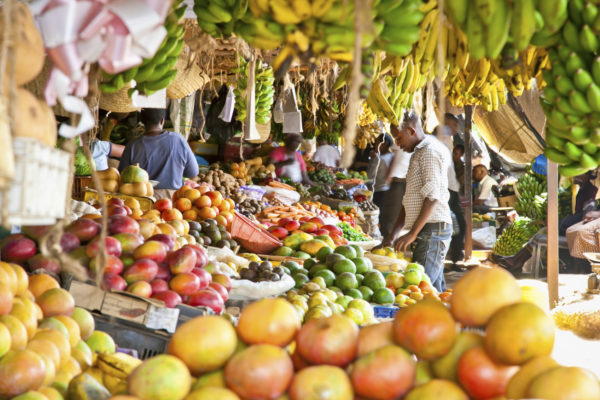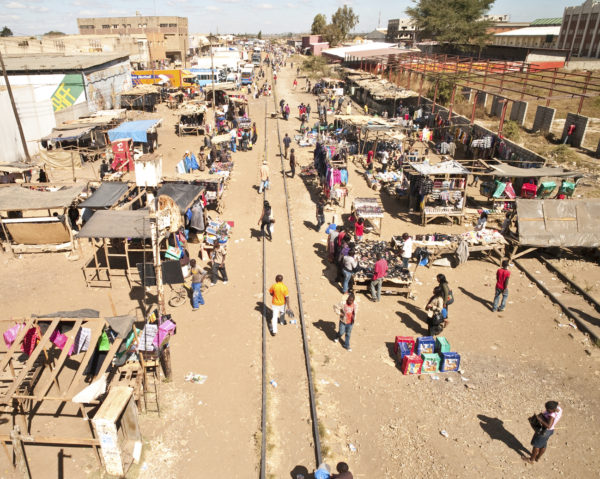Developing innovative research in urban food security, through new methods and a new generation of researchers
Gareth Haysom

It is only recently that urban food security has been taken up as a major development issue. While the question of urban food security is beginning to receive research attention, the related questions of poverty in the context of African urbanism and food security require far greater enquiry. The intersection between poverty and the food system opens up new areas of enquiry that are departures from the traditional responses to urban food insecurity (often productionist) and poverty. This is the focus of the ESRC/DFID funded project, Governing Food Systems to Alleviate Poverty in Secondary Cities in Africa, also known as the Consuming Urban Poverty (CUP) project. This novelty requires both the development of research capacity in this emerging field and new methodological approaches. In this case, the assertion made by Caroline Steel that “in order to understand cities properly, we need to look at them through food”[i] guides our project.
Primary cities dominate African urban research. However, evidence suggests that the secondary cities in Africa are urbanising most rapidly[ii], cities where there are considerable gaps in knowledge and governance challenges that differ from those of primary cities. This presents a real development challenge – a challenge compounded by the fact that understanding urban food systems has not been core to the work of officials or researchers in these cities and towns.
A wider urban food system focus has not really been applied in African cities, and certainly not in secondary cities. Using the food system as a lens to understand urban poverty offers numerous new research avenues, providing an opportunity to attempt new techniques and the introduction of novel research tools.
The CUP project is a research partnership between the University of Cape Town; the Kisumu Local Implementation Platform (or KLIP), a partnership between Maseno University and Jaramogi Oginga Odinga University of Science and Technology, both based out of Kisumu, Kenya; Copperbelt University in Kitwe, Zambia; and the University of Zimbabwe, where the site under review is Epworth, a dormitory town on the outskirts of Harare.
When the collaborative research partnership principles of the CUP project are considered, coupled with the specific application of food as a lens to understand these secondary cities, complex methodological questions arise. The project research strategy aims to maximize the theoretical potential of the cross-case analysis by minimising broad contextual differences between individual cases. As such, the research design accords with the general principles of the “comparative case study of commonalities”[iii]. Work in the three cities takes place concurrently. As urban food security and urban food systems are relatively new areas of study, working in this field has led to some interesting disciplinary challenges as there are no ‘urban food experts’ embedded in the partner cities.
These factors necessitated the development of what we believe are innovative research tools and methods. The fieldwork for the food security and food systems work package of the project incorporated the use of hand held tablets and open source software, in this instance using Open Data Kit (ODK) on the handheld tablets and ONA, a social enterprise operation based in Nairobi as the support platform. A broad group of researchers were recruited to support this research, including undergraduate enumerators, postgraduate team leaders and junior academics as fieldwork leaders and drivers of specific components of the research. In Kitwe, local government officials were included in the research team.
 In some partner cities, senior researchers took part in the collaborative design of survey tools, but were more comfortable stepping back and allowing younger staff with more intuitive grasps of technology to drive subsequent components of the fieldwork. The opening up of a space for the next generation of urban researchers has enhanced the methodological processes necessary in this project, providing opportunities for researcher capacity development.
In some partner cities, senior researchers took part in the collaborative design of survey tools, but were more comfortable stepping back and allowing younger staff with more intuitive grasps of technology to drive subsequent components of the fieldwork. The opening up of a space for the next generation of urban researchers has enhanced the methodological processes necessary in this project, providing opportunities for researcher capacity development.
Operationally the use of tablets allowed survey design to be modified easily and cheaply according to local circumstances. It also allowed real time uploads of data so that both research supervisors in partner cities and the Cape Town team could assess the quality of the data on a daily basis. It has also meant that the research teams in each city can see the data from the other cities, which can provoke dialogue.
Applying new technology does come with challenges, including building technical capacity to enable problem solving, ensuring tablet use protocols are adhered to, synchronising data management via a single accessible platform, and ensuring a uniform understanding of the research process and protocols. However, the central assertion and lesson learnt from the application was that process matters. While time consuming, going through the iterative processes of first developing the survey and then building the survey through different training sessions, meant that skills development and capacity building across different strata of academic staff and students was built.
In each partner city a designated research or data manager was identified. These managers have taken responsibility for maintaining the tablets, the survey integrity and for the daily uploads of data as this comes in from the field. These data managers, all relatively junior academics, have acquired new skills that can be applied across their universities. The survey supervisors, often senior post-graduate students, have also developed new skills, as have the enumerators. In a number of instances post-graduate students requested if they could use the technology for their own research.
The Consuming Urban Poverty project has therefore had to build inter-disciplinary knowledge networks, drawing on the existing contextual knowledge, experience and disciplinary training of the research partners. Through this CUP has built local capacity able to engage the dynamic nature of the urban food system. This has been particularly important in opening up a space to encourage the development of the next generation of urban researchers in the partner institutions.
Using the technology does require constant management and a clear set of protocols. However in a multi-country partnership, the technology became a means to build collaboration, while at the same time building capacity and equipping a new cohort of young African researchers with the means to collect data and build knowledge in a cost-effective way. Technologies and platforms such as ONA and ODK have real value. Learning to apply these in ways that build collaboration and support research partnerships has been an important learning process.
Gareth Haysom works as a researcher on the ESRC-funded project Governing Food Systems to Alleviate Poverty in Secondary Cities in Africa.
[i] Steel, C. (2008). Hungry City – How food shapes our lives. London: Chatto and Windus.
[ii] Pieterse, E., Parnell, S. & Haysom, G. (2015). Towards and African Urban Agenda. UN-Habitat and Economic Commission for Africa, UN-Habitat, Nairobi.
[iii] Ragin, C.(1999). The Distinctiveness of Case-oriented Research, HSR: Health Services Research, 34(5), pp. 1137-1151.